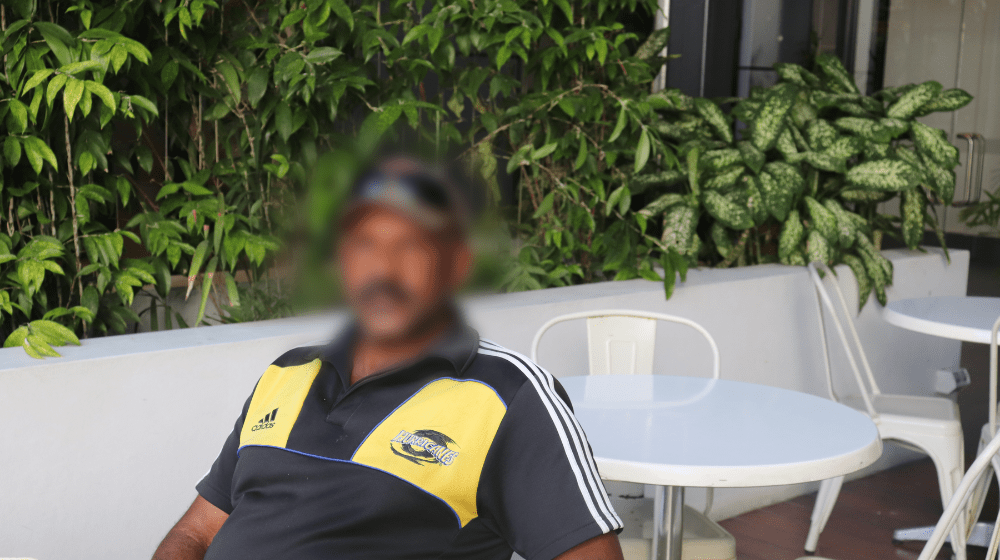In 2012, hundreds of men working at the LNG plant in Komo were offered penis enlargement by a doctor who charged them 50 kina per injection. Now, these men are facing life-long complications, with surgery costing up to 15,000 kina. If left untreated, the penile fibroma can lead to death.
Brave men are speaking out about this practice to raise awareness for their countrymen; to support those who are suffering and to educate those who may be enticed to have these injections about the consequences.
“My two wives have left me to enter new marriages and I cannot complain. I know it is my fault.”
Gibson Paiyale from Waralo Village in Tari district, Hela Province, was working at a rigger at the LNG project back in 2012 when he and his colleagues were approached with an opportunity. The men were offered injections with the promise of increasing their penis size.
According to Gibson, hundreds were enticed by the offer.
“I and hundreds of tradesmen on site decided to get the injections that supposedly made one's genitals grow bigger,” said Gibson. “I took one shot for 50 kina”.
He said that a shot included baby oil or cooking oil, some herbal leaves and an unknown liquid in a vial. Though he took only one shot, others opted for the maximum of four injections, costing 200 kina.
By 2017, Gibson started facing issues. His whole groin area had hardened and before he knew it, he was completely different.
Now 45 years old, Gibson faces ongoing health implications like intense backaches. He lives on painkillers just to alleviate most of the pain. Other men have died from the complications from these injections.
Exposing the Dangers of Penile Injections
Since the issue was first brought to the attention of the United Nations Population Fund (UNFPA) in 2022, there have been an increasing number of reports of the practice in Papua New Guinea, in both rural and urban areas. There is very limited awareness of the life-threatening dangers of the injections.
Senior surgeons, who have successfully repaired the damage caused by the injections in some patients, spoke at UNFPA’s HealthFest last month on the importance of ending the silence and the stigma surrounding these injections. They shared that the longer men neglect this issue, it can lead to cancer, and even to death.
The complication is termed ‘penile fibroma’; a disease and connective tissue disorder involving the growth of fibrous plaques in the soft tissue of the penis, commonly known as the “cobra-head”. Operation is the only option for patients with penile fibroma, an operation that costs between 5,000 to 15,000 kina.
According to Dr. Mitchell Masin, in 2019 the East Sepik Provincial Hospital saw 20 penile fibroma cases. Moreover, from the 604 trauma cases that came into the hospital in 2022, 240 were penile fibroma cases.
Breaking the Silence
Despite the volume of cases, most men are not speaking up due to fear of facing backlash, discrimination, and stigma in their communities and families.
“What I am going through, I know there are many men who are going through the same thing but cannot speak up due to stigma and embarrassment,” Gibson expressed.
“It is our fault. We cannot even blame the cobra-head ‘doctor’ because he did not force us to get the injection. From our own carelessness and stupidity, we are now victims of this.”
“We need more awareness on this issue,” says Gibson. “This cobra-head injection is silently destroying lives and leaving families in distress. This is an appeal to authorities to look into this matter. Information is key, and more information regarding this issue needs to be out in the communities.”


